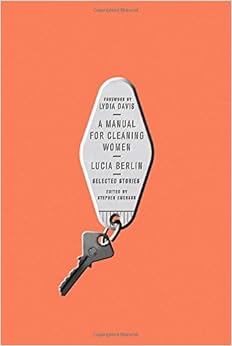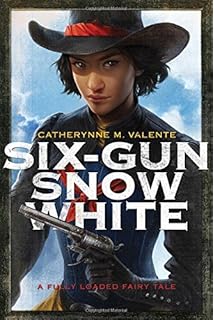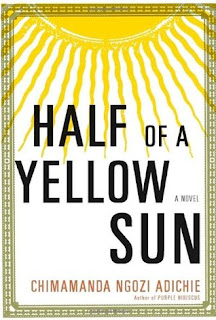I've been interested to read Ancillary Justice since I first heard about it. I mean, not only did it win all the major awards that year, the fact that it did sent some people whose opinions are diametrically opposed to mine into shitfits. So, it seemed right up my alley. Interesting ways of dealing with gender? Even if that's not the main thrust of the book? I'm in. And I was not disappointed. What I found here was marvellously well thought out and layered with complexity. Leckie is trying to do a great many things here, and she does them all well.
Let's take on the gender thing first. This is pretty much an answer to my pet peeve about Ursula K. LeGuin's The Left Hand of Darkness. In that book, using male pronouns and words tended to elide the genderfluid nature of the aliens, because we are so used to seeing that pronoun used as a default. As I argued at the time I reviewed it, using a gender neutral pronoun, or even "she" would make gender more obvious as an issue, as we are not used to hearing the female as the universal.
Which is exactly what Leckie is doing in Ancillary Justice. The main character, Breq, the last remaining ancillary body of a ship that was destroyed, only uses female pronouns to refer to everyone. This is part of the colonizing empire culture from which she comes, the Radch. People may have different biological sexes, but gender is not attached to them, and sexuality doesn't seem to be either. Breq, unless I missed it, is never definitively given those cues that allow the reader to resolve her gender into one half of a binary, although some other characters are. This is partly because the worlds through which Breq is travelling sometimes do have languages that make differentiations based on gender, as well as one age or life cycle. Breq is frequently baffled by trying to tie cultural cues to gender to language, as she has travelled widely and new gender cues can be impenetrable.
(To be clear, everyone she meets is human, if widespread and greatly varied.)
HOWEVER. This is fascinating, and I loved the way it tugged my attention to assumptions I make about gender every once in a while. But it is not really the meat of the story. The meat of the story is one of revenge, of searching, and of identity in a universe where identity means almost nothing like what it does to us.
For most of the Radch, they have one body. However, the ships are equipped with up to thousands of "ancillaries," - hollowed out bodies of people from worlds conquered, with a disparate identity shared between all the ancillaries of a ship. The ruler of the Radch, Anaander Miaanai, likewise uses many bodies - how better to rule an empire that spans galaxies that by physically being present in many places at once.
So what is the core of identity? Is it the one you're born with? At one point, Breq finds someone offering to revert her to the person she was before she was Breq - and she responds with some hostility, as this person is more or less suggesting killing off the identity that does exist in the body now.
How Breq came to occupy just one body is slowly portioned out over the book, showing how rebellion and dissent might occur in an empire like the one shown here. Leckie showed immense attention to detail here in creating her culture, and it enhances the books in really marvellous ways - from the way people dress to the way they interact.
Honestly, as I put in very early plans to launch an SF/F directed reading group, I can't wait to get to a topic for which this is suitable, because there's just so much to talk about.
I read this book as part of an attempt to read all the Hugo Nominees
Let's take on the gender thing first. This is pretty much an answer to my pet peeve about Ursula K. LeGuin's The Left Hand of Darkness. In that book, using male pronouns and words tended to elide the genderfluid nature of the aliens, because we are so used to seeing that pronoun used as a default. As I argued at the time I reviewed it, using a gender neutral pronoun, or even "she" would make gender more obvious as an issue, as we are not used to hearing the female as the universal.
Which is exactly what Leckie is doing in Ancillary Justice. The main character, Breq, the last remaining ancillary body of a ship that was destroyed, only uses female pronouns to refer to everyone. This is part of the colonizing empire culture from which she comes, the Radch. People may have different biological sexes, but gender is not attached to them, and sexuality doesn't seem to be either. Breq, unless I missed it, is never definitively given those cues that allow the reader to resolve her gender into one half of a binary, although some other characters are. This is partly because the worlds through which Breq is travelling sometimes do have languages that make differentiations based on gender, as well as one age or life cycle. Breq is frequently baffled by trying to tie cultural cues to gender to language, as she has travelled widely and new gender cues can be impenetrable.
(To be clear, everyone she meets is human, if widespread and greatly varied.)
HOWEVER. This is fascinating, and I loved the way it tugged my attention to assumptions I make about gender every once in a while. But it is not really the meat of the story. The meat of the story is one of revenge, of searching, and of identity in a universe where identity means almost nothing like what it does to us.
For most of the Radch, they have one body. However, the ships are equipped with up to thousands of "ancillaries," - hollowed out bodies of people from worlds conquered, with a disparate identity shared between all the ancillaries of a ship. The ruler of the Radch, Anaander Miaanai, likewise uses many bodies - how better to rule an empire that spans galaxies that by physically being present in many places at once.
So what is the core of identity? Is it the one you're born with? At one point, Breq finds someone offering to revert her to the person she was before she was Breq - and she responds with some hostility, as this person is more or less suggesting killing off the identity that does exist in the body now.
How Breq came to occupy just one body is slowly portioned out over the book, showing how rebellion and dissent might occur in an empire like the one shown here. Leckie showed immense attention to detail here in creating her culture, and it enhances the books in really marvellous ways - from the way people dress to the way they interact.
Honestly, as I put in very early plans to launch an SF/F directed reading group, I can't wait to get to a topic for which this is suitable, because there's just so much to talk about.
Booklinks:
I read this book as part of an attempt to read all the Hugo Nominees



.jpg/220px-RemnantPopulation(1stEd).jpg)








